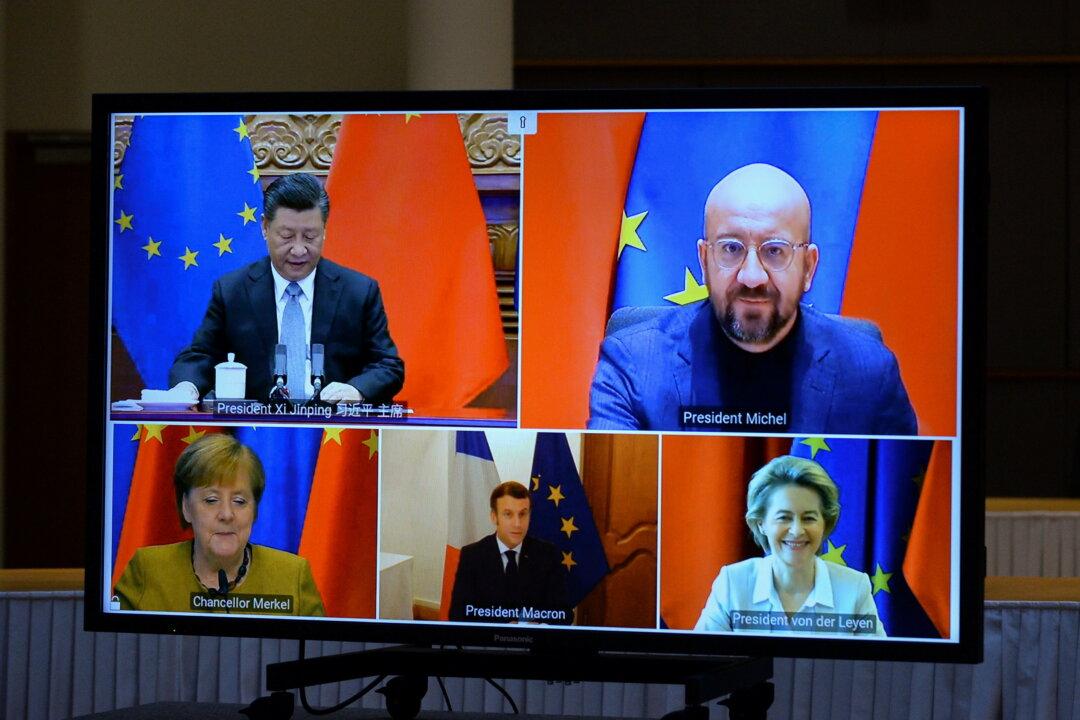The European Union and China on Dec. 30 announced a business investment deal after the communist regime made commitments to improve market access.
The Comprehensive Agreement on Investment, which was seven years in the making, was concluded “in principle” at a video conference attended by Chinese leader Xi Jinping, European Commission President Ursula von der Leyen, and European Council President Charles Michel, along with German Chancellor Angela Merkel and French President Emmanuel Macron.
Beijing has also agreed to pursue ratification of the International Labor Organization’s rules on forced labor, the Commission said.
“Today’s agreement is an important landmark in our relationship with China and for our values-based trade agenda,” von der Leyen said. “It will provide unprecedented access to the Chinese market for European investors, enabling our businesses to grow and create jobs.”
“We will engage closely with China to ensure that all commitments are honored fully,” EU Trade Commissioner Valdis Dombrovskis said.
Hosuk Lee-Makiyama, director of trade think tank ECIPE, said that while there’s little obvious benefit for Beijing in the text, China wouldn’t have signed on without some promise of advantage.
“No major power, not least China, gives anything for free, so there will be a trade-off. It’s just not in the agreement,” he said.
Compared with a trade deal, which might include retaliatory tariffs, such an investment deal is also more difficult to enforce, Lee-Makiyama said, noting that the EU would be unlikely, for example, to seize Chinese assets.
The EU has been keen to portray the agreement as a step toward forging multilateral rules. It still doesn’t cover issues including trade flows or public procurement for the likes of telecoms equipment maker Huawei.
At the video conference, the leaders also discussed the COVID-19 pandemic, which originated in Wuhan, China, with the emergence of the CCP (Chinese Communist Party) virus.
EU leaders emphasized the need to “reinforce international cooperation to better anticipate and manage potential future pandemics.”
The Chinese regime’s coverup of the initial CCP virus outbreak is widely seen as one of the main causes of the pandemic.





